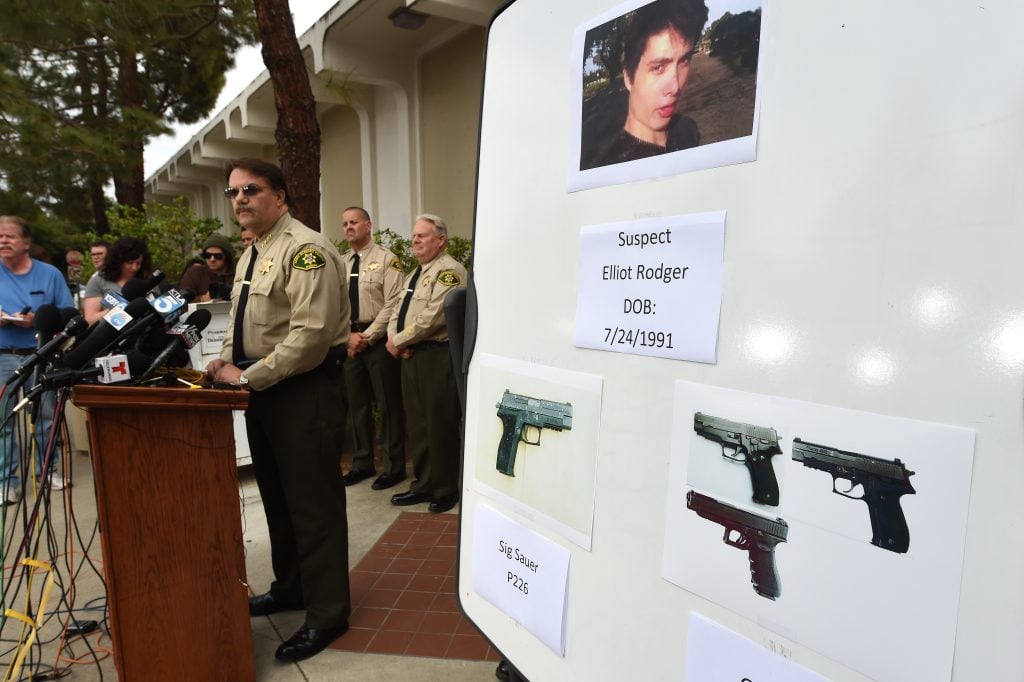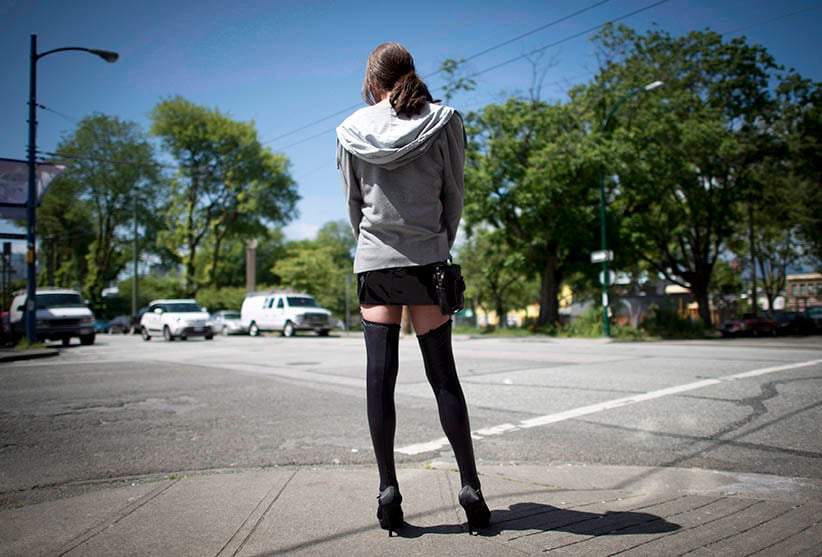The hidden crisis that’s fuelling the ‘incel rebellion’
What began as toxic culture in fringe spaces has metastasized into ideologies of violence, fuelled by the way men are socialized—and ideas like ‘sex redistribution’ won’t help

Share
Two weeks ago, a man climbed behind the wheel of a rented van, and used it to commit the worst mass homicide in Toronto’s history. In the hours before Toronto Police began to clarify details of the attack, the rampant speculation suggested that Canada was poised to revisit the terror scare that led to the 2015 passage of the draconian Anti-Terrorism Act and the Zero Tolerance for Barbaric Cultural Practices Act. But when it was discovered that the alleged killer Alek Minassian was, in fact, a geographically Caucasian male who seemed to subscribe to the deeply misogynistic “incel” (involuntarily celibate) culture, the emerging opinions on how to deal with others who share his ideology went in a completely different direction.
Rather than a substantial conversation about the crisis of angry and disaffected young white men turning to mass violence, two general outlooks have emerged. One of them is the shoulder-shrugging belief that there really is nothing to be done: As long as they haven’t grown beards and claimed affiliation with religious extremists, they are merely weirdos and psychopaths who will glom on to any irrational reason to act on their violent impulses. Another, which stems from the deeply pathological belief that the path to manhood is tread through a woman’s loins, is that inceldom can be cured by getting these wayward young men laid. And this belief, which a generation ago would have been reduced to the notion that “hiring a prostitute” could solve the incel problem, has recently transformed into a truly dystopian notion that “sex redistribution” could perhaps be an answer.
READ MORE: Toronto van suspect’s cryptic ‘Incel Rebellion’ Facebook post explained
But here’s what’s being missed in the conversation: the men who call themselves “incels,” and the broader internet sphere of men who cluster their identities around having been done wrong by women, are not interested in mere sexual companionship. Their loneliness, angst, and the feeling of lost power are a pitiable cover story to a problem with white male subcultures that reaches back several years and into some of the darkest corners of the internet. What began as unchecked toxic culture in fringe websites and forums has metastasized into varying ideologies of self-perpetuating hatred and violence. Ignoring this toxic culture—or brushing it off with pat or ridiculous answers—would be a mistake.

“It’s precisely the ‘soft boys’ and the ‘nice guys’ who have these misogynistic views that will turn on you in a second,” says Tina, a trans woman who once subscribed to incel culture before her transition. In an interview with Maclean’s, she explained that the culture is not built around a desire for sex, but resentment over a perceived loss of power. “If you don’t fit their established hierarchy of men on top, fulfilling their sexual needs, and getting whatever they want, you’re the enemy.”
For Tina, the catalyst that put her on the path to to incel culture (prior to her transition) was what she described as chronic loneliness and depression. “I [later] realized that that was gender dysphoria working its way out. I always wanted to be ‘the nice guy,’ because I was rebelling against masculinity.” Incel culture offered an emotional crutch for lonely men that placed the blame for society valuing a particular type of man – the “Alpha male,” – and it seemed she had found kindred souls. But after spending some time in the forums, and being exposed to the rampant misogyny and racism, the environment began to sour. “These people are fundamentally opposed to an indelible aspect of my personality,” she said. “And I felt that I could connect with women, almost better than I could with dudes.” It was in accepting herself at the time as a “soft boy,” and turning away from the toxic atmosphere, that Tina left the incel boards and developed a healthier relationship with her gender identity.
“Soft boys,” as Tina describes them, fit into the broad category of “beta males,” who have for years frequented internet message boards within the overlapping sphere of the men’s rights and the pickup artist communities (often described as the “manosphere”) in the hopes of deciphering the arcane secrets to seducing and sleeping with highly attractive women. The belief that hapless betas could transform themselves into alpha males, and thus seduce the women they wanted, became a running theme within the multimillion-dollar pickup artist industry, which flourished in the mid-2000s after Neil Strauss’s book The Game: Penetrating the Secret Society of Pickup Artists reached the New York Times bestseller list.
Some in the industry would later focus on steering men towards a path of self-improvement in order to position themselves as better partners and better men. But others, like the much-ridiculed RooshV—who has publicly advocated that marital rape should be legalized, and whose site Return of Kings brims with articles with headlines like “Women are sluts if they sleep around but men are not,” and “The most respected men know how to fight”—have pandered to the anger that the disaffected had begun to harbour towards women in their teenage years and failed to grow out of.
READ MORE: Incels are fuelled by stupid, pointless rage—but that rage is still a threat
The doubling-down on the most toxic approaches to masculinity within the manosphere soon crystallized into “red pill” culture. The phrase “red pill” is a reference to a scene in the 1999 film The Matrix, in which the main character had to choose between understanding brutal truths, and living in blissful ignorance. Red pill theory holds that, in a sexually liberated society, women have become Machiavellian creatures who seek the highest value in a male companion, while surreptitiously reducing their own value by—as it’s described in the r/theredpill Reddit forum— “riding the c–k carousel” in their promiscuous youth. Thus, the secret to sleeping with women lay in increasing one’s own value (most often through exercise, education, and acquiring wealth), while diminishing women—often by demeaning them to their faces.
This approach, unsurprisingly, rarely worked.
“With incels, they got started off in forums like PUAhate.com. That started off, theoretically, to keep the pickup community honest, talking about which guys were scam artists, and which ones were real,” says Harris O’Malley, a popular dating blogger known online as Dr. Nerdlove and who was formerly associated with the pickup community. “It very quickly started turning into a belief that none of this works. These are all people taking our money, and daring to [fraudulently] give us hope.” Through his blog, his contributions on gaming website Kotaku.com, and his podcast, O’Malley contributes what he feels is his responsibility in countering the rip-currents within the internet that often drag down lonely, depressed men. “A lot of my job is trying to break down the toxic masculine ideals that we’ve been swimming in, all our lives…Nerds especially define themselves as much by what they can’t do, as by what they’re interested in. There’s still that self-defined image of ‘geeky outcast,’ and that’s weird, because we’re in a time when nerds have taken over.”
Jordan Harbinger, a self-improvement coach and podcast host who got his start in the pickup scene, agreed with the assessment. But he added that the paranoid and self-affirming nature of incel culture lends itself towards radicalization, as incels not only believe that women are denying them sex, but also that an invisible social structure exists to prevent them from sexual gratification.
“One of the reasons that the solution to this is so hard, is that these guys are invested in believing you cannot make yourself a better person, and they actively stop other people from trying,” Harbinger said. “If you and I are incels, and you say ‘we should work out, and try to learn better social skills,’ I would immediately say ‘No,’ because not only do I not want to do the work, I don’t want you to do it either. If you succeed where I failed, it highlights the fact that I’m a failure. It’s easy for me to dissuade you by saying, ‘You’re a sucker for playing their game.’”
READ MORE: Toronto attack déjà-vu: lessons from the misogynist Montreal massacre
If the broader manosphere is pathological to healthy male relationships with women, incel forums are, in their own way, a lethal virus. The posters’ jokes revolve primarily around revenging themselves on “Chads” (attractive men) and “Stacys” (attractive women), fomenting a “revolution” (in which unattractive men engage in organized mass violence against a system designed to withhold sex from them), and making saints of men who engage in mass violence. After Elliot Rodger’s 2014 spree killing in Isla Vista, Calif., the self-described incel’s manifesto drew widespread applause in the community, and he was cheered as a hero. The r/incels online forum on Reddit, before its termination, was rife with messages depicting Rodger as a Christian saint, and linking to videos in which members expressed their admiration for him.
The discourse in similar forums elsewhere, already polluted by an internet culture that crossed the line from rewarding dark humour to encouraging violent and sociopathic content, became a breeding ground for radicalization. “You look at the incel forums, and they’re dehumanizing women all over the place,” O’Malley said. “Aside from calling by these names like ‘femoids’ and ‘Stacys’ and ‘roasties’ [a derogatory phrase referring to the appearance of a promiscuous woman’s vagina], they’re talking about how women are robbing them of what they deserve, and indulging fantasies about government forcing women to sleep with incels. That they should be allowed to rape them. And eventually you’ve got someone with enough hate and anger, that they don’t confine it to fantasy.” O’Malley added that the forums not only fomented their own forms of violence, but created attractive spaces from which the alt-right and neo-Nazi movements could draw new recruits.
Tina confirmed all of this, adding that the negative feedback loop of incel culture, which prevents depressed and often unstable men from seeking help, is fertilized by the broader manosphere. “In these toxic male spaces on the internet, the good guy always gets the damsel. You are always the hero of your own story; you are always the knight,” Tina said. “You’ve been told you deserve things all your life, and when you can’t have it, you get mad, and you fight back. They’ve taken that and applied it to the economy of sex, love, and affection. And because boys are already forbidden on so many levels from showing affection to each other in healthy ways, they decided that affection was denied to them by some superstructure with sinister feminism and social justice at its core. They blame everyone from Black men for stealing their women, to Asian men for having better careers, to Jewish people for having a conspiracy against white people breeding, to trans people for feminizing men. And most of all, they blame women for denying them the sexual validation they think they’re entitled to.”

All too often, that anger and blame becomes fixated on a particular target, and the target is almost always a woman. Chanty, a former feminist activist, found this out firsthand, when she was targeted for harassment after a video of her protesting outside a Men’s Rights event at the University of Toronto in 2013 went viral. “It was like everything they’ve ever hated a woman for was turned on me at that moment,” she said. “I was targeted with harassment, rape threats, and death threats for weeks, and it didn’t let up. I had to completely erase my online profiles and stay indoors because some of this stuff was really graphic. It got to me.”
Chanty had previously spent her free time as an abortion clinic escort, but had to stop out of fear that her presence might put the women’s safety in even greater danger. Her hair is a recognizable bright red (which earned her the moniker “Big Red” in men’s rights forums), and she felt forced to wear a wig when commuting to and from work, out of fear that she might be randomly assaulted by a stranger. That wasn’t enough.
Three years after the video of her went viral, Chanty was notified that a recent trip to her local LCBO had come to public attention. The clerk who helped her choose a bottle of wine had gone through the security footage, clipped photos of their encounter, and posted it online. Chanty skimmed through the man’s Facebook profile, and found pictures of him holding an AR-15 rifle.
Chanty says she later took her complaint directly to the LCBO, which terminated the employee. (An LCBO spokesperson confirmed that the incident did occur and that the employee was “no longer with LCBO,” but couldn’t elaborate due to employee confidentiality rules.) But she still feels that her likeness and public image, often used by men’s rights groups (and even Joe Rogan) to demean feminists and “social justice warriors,” makes it dangerous for her to return to activism. “I feel like my voice was taken away,” she said. “Because I stood up to men.”
Christine Estima, a Toronto-area author and playwright, was herself targeted when she tweeted about male entitlement to women’s bodies in the aftermath of the Toronto van attack: “WOMEN DON’T OWE YOU SEX. We don’t owe you our time, our attention & certainly not our bodies. You are not entitled to us. You’re not ‘involuntarily celibate.’ You just prioritize your fragile, narcissistic masculinity over women’s autonomy.” Almost immediately, Estima’s Twitter account was deluged with harassing and sexually explicit messages.
Having previously written about street harassment, and regularly encountered this sort of response to her tweets, Estima remained unfazed. “It’s interesting how women are seen dually as the object of desire, and the object of ridicule,” she said. “What I’ve learned from street harassment is that the only way to fight back that works is to embarrass them in front of their friends. I’m not interested in a dialogue or a civil debate on the autonomy of my own body.”
Estima, for the most part, has responded with devastating humour, poking fun at the fragility and inadequacy of the men who send her harassing messages. But the responses that disturb her the most are the ones coming from purported “allies,” who glibly suggest that inceldom could be cured by “hiring hookers” to alleviate male sexual frustration. “[Sex workers] are not vessels for men to take out their frustrations,” Estima said. “They are not a lower class of human being. They are still women, who are entitled to safety. If boning dudes could make them less violent, don’t you think that would have happened already?”

According to Tina, the idea of “sex redistribution” utterly fails if it involves sex workers. “They don’t want to talk to sex workers,” says the former incel. “That’s not the kind of woman they want: They want someone subservient. And they don’t want to pay for it, they want it handed to them.” Advocating to put sex workers into contact with incels is not only dismissive of the social problems that feed incel culture, she says—it poses a serious risk to the workers themselves.
Olivia Grace, a Toronto-based sex worker, says that men who frequent toxic online forums are the kind of client she would never do business with. “They have very specific women that they want to have very specific sex with, and on their terms,” said Grace. “We send the signal to boys and men that if you can’t get a girl, you’re not a man. And it gives the impression that women hold all the power in the relationship, so if we’re withholding, we’re also harming. As far as sex workers go, they don’t even see us as human.”
Grace recalls a client who hired her for sex, but possibly out of a projection of his own shame, began to ridicule her for her line of work. “He wanted to pay me for sex, but he got distracted by the need to shame me for doing sex work,” she said. “I didn’t even know how to respond to it. It felt dangerous.” Grace was distraught by the encounter and tried to cancel the appointment, but the man attempted to block her exit with his body. She had to shoulder him out of the way to escape the hotel room.
According to Julie Grant, a sex worker and industry advocate, the toxic culture of lonely white males doesn’t require face-to-face contact to endanger their business and their personal safety. Engaging in feminist discourse online brings additional risks from the manosphere communities, especially incels. “We have these guys that will call to jam up the lines of an escort agency. They’ll just call, over and over, and whoever answers the phone will be called vile names and hear horrible things about sex workers,” she said. “Because there’s so many of them, they will tie up the lines and shut down our business for a whole weekend, or however long they’re amused by it.”
Grant says that she has had to change her online identity after being targeted for harassment. Alt-right trolls bombarded escort forums with negative reviews about her, and left harassing messages across her social media profiles. “We are vehemently hated by these men. They consider us the worst of the worst women on this earth. And because there is such a large nerd component to these groups, they instil a fear that they have the technological know-how to expose our identities and possibly worse.” When asked about the possibility that sex workers could help resolve the anger and disaffection felt within the manosphere, she fell silent for a moment, before saying, “Absolutely not. Sex workers are not the canary in the coal mine. We shouldn’t be sacrificed to solve men’s problems.”
“I’m not trying to place blame,” said Grace. “But I always see this happen, and it’s so annoying. ‘Why didn’t Alek Minassian hire a sex worker?’ Because at its core, it wasn’t really about sex. It’s about hate towards women.”
When asked what could be done to eliminate this toxic subculture, all of the interviewees were unanimous in their opinion: white communities need to have difficult and uncomfortable conversations about the way young white men are socialized, long before they find their way to the male supremacist corners of the internet. “It’s an upside-down world we are living in, where white men see themselves as the most disadvantaged,” said Grant. “But no one can see it except them.”
“You can’t paint a brighter picture of radicalization,” Harbinger said. “We have a problem. And frankly, if this guy hadn’t said ‘All hail Elliot Rodger,’ people might not have even made the f–king connection. And we’d be right back to doing nothing.”
“Because so much of Western culture sees whiteness as the default, white people are allowed to be individuals, whereas people of colour are seen as being part of one community, and sharing various traits,” said O’Malley, the dating blogger.“It’s a lot easier for white people to go, ‘Oh, this was a lone wolf. This was a guy that had bad wiring.’ ”
O’Malley added that, while his work puts him in contact with many lonely and disaffected young men, the bulk of the work in having these conversations has been done by women—especially Black women. And that is indicative of the limitations that men have placed on themselves—in how they help other men who are hurting, and in how they express their emotions. Failing to do these things in a healthy way, he says, leaves young men open to toxic and often violent influences, of which incel culture is the logical endpoint. “We’re not allowed to be nurturing, or caring, or to open up and be emotionally intimate,” he said. “We’re only allowed to acknowledge our emotions when our dog or our dad dies, or when our football team loses.”
If nothing else, the current crisis of violent outbursts among young white males has shown that “man up” is not only a poor ethos, it’s failing a generation of men who have been socialized to believe they are entitled to sex. Having those conversations early, and intervening with young men who are on the path to depression and disaffection, has certainly made a difference in other communities that have experienced their own crises, from Black churches to the mosques of Muslim communities and the community centres of low-income neighbourhoods. And at this point, anything would be better than bizarre ideas about sex redistribution, or hand-washing platitudes that amount to doing nothing at all.